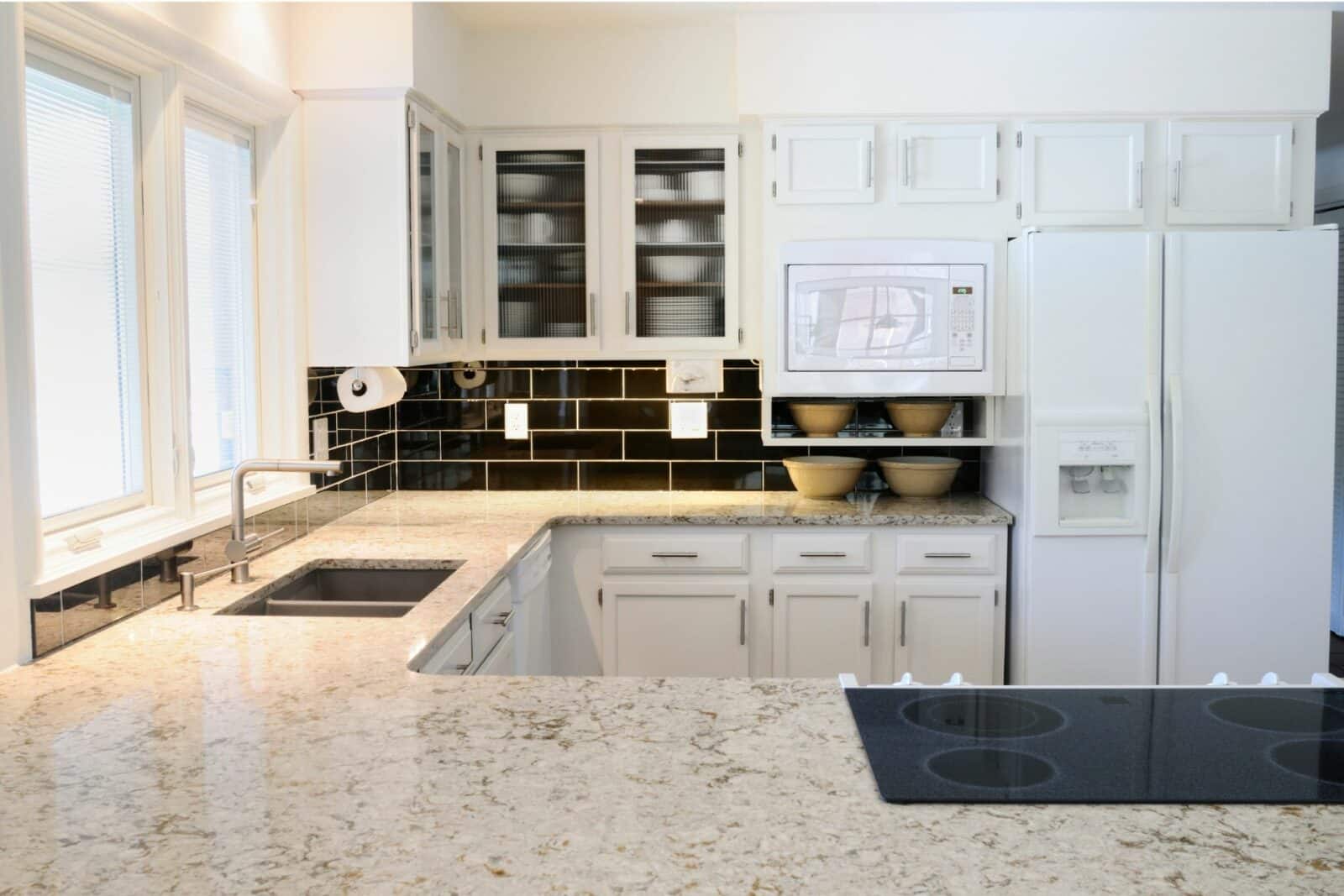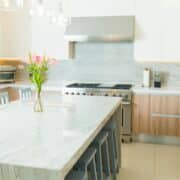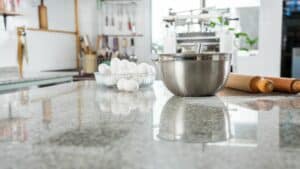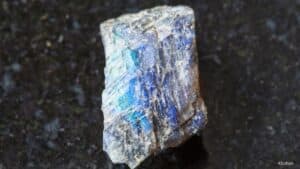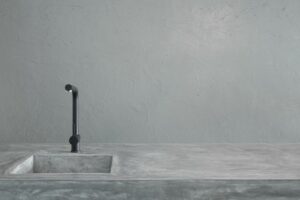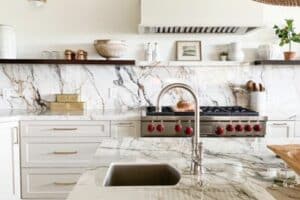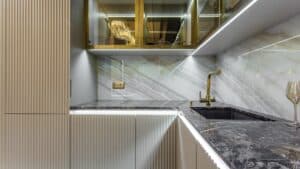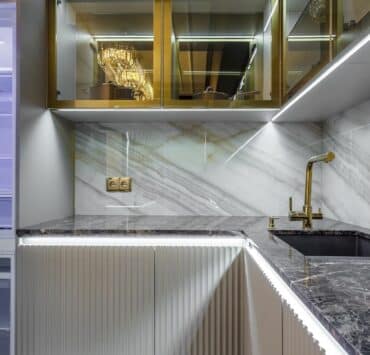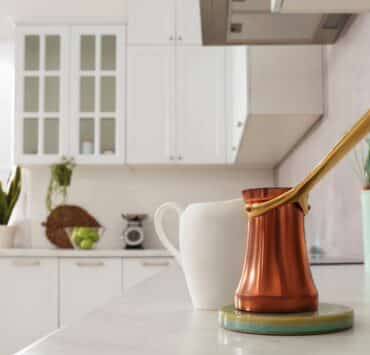Solid surface countertops have become a popular choice in kitchen remodeling due to their durability, versatility, and seamless appearance. Developed in the 1960s, these countertops offer a stylish and practical solution for homeowners.
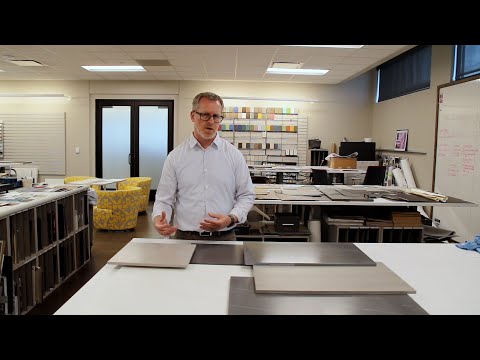
What Are Solid Surface Countertops?
- Composition and Structure: Solid surface countertops are made from a blend of acrylic and polyester resins, providing a uniform, non-porous surface. They are engineered to resist stains and scratches, making them suitable for high-traffic areas like kitchens and bathrooms.
- History and Evolution: First introduced by DuPont in the 1960s under the Corian brand, solid surface countertops have evolved to include a wide range of colors and patterns. Today, several brands offer variations of the original design.
- Comparison with Other Countertop Materials: Compared to natural stone like granite or marble, solid surface countertops offer more consistent colors and patterns. They also differ from engineered stone (quartz) and laminate by providing seamless integration and better repairability.

Features and Benefits of Solid Surface Countertops
- Durability and Resistance: Solid surface countertops are resistant to stains and scratches, although care is required to prevent damage from hot pans. They are non-porous, making them resistant to mold and mildew.
- Aesthetic Versatility: Available in a wide range of colors and patterns, solid surface countertops can mimic natural stone or provide a more uniform appearance. Seamless joints allow for uninterrupted surfaces, perfect for modern kitchen remodeling.
- Hygiene and Maintenance: Their non-porous surface makes them easy to clean with mild soap and water. Solid surface countertops are also resistant to bacteria and mold, making them ideal for kitchens and bathrooms.
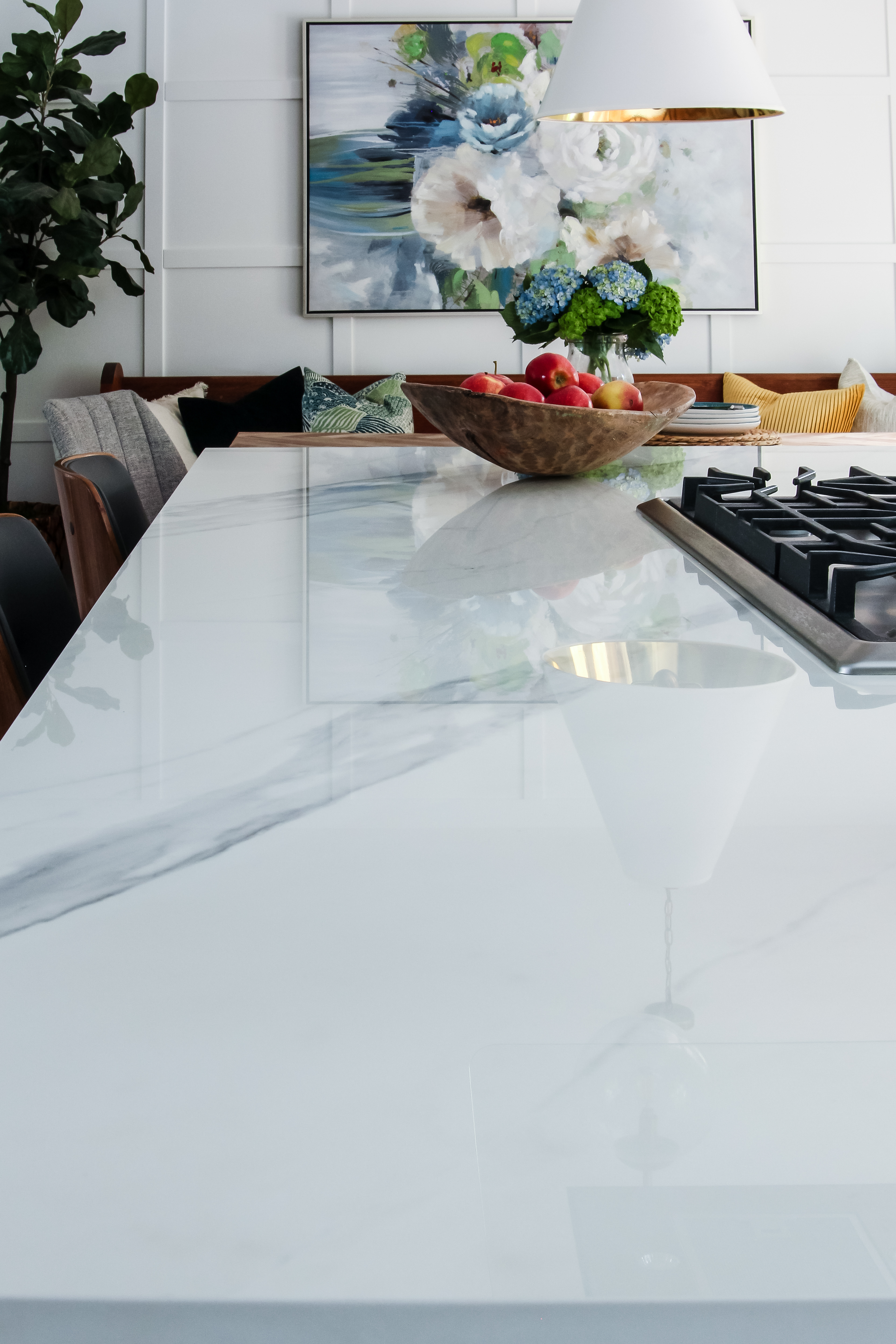
Installation and Fabrication
Professional Installation Process:
- Measurement and Template Creation: Installers measure the space and create a template.
- Cutting, Shaping, and Joining: Countertops are cut and shaped to fit, then joined seamlessly.
- Final Installation: After fabrication, the countertops are securely installed in the kitchen or bathroom.
DIY Solid Surface Countertop Installation Considerations
While DIY installation is possible, it requires specialized tools and skills. Homeowners should consider the complexity of cutting and joining solid surface materials before attempting a DIY project.
Customization Options
Solid surface countertops can include integrated sinks, custom backsplashes, and a variety of edge profiles for a personalized look.

Applications of Solid Surface Countertops
- Kitchen Countertops: Solid surface countertops provide a seamless and hygienic surface ideal for kitchen remodeling projects. Popular kitchen trends include integrated sinks and waterfall edges.
- Bathroom Vanities: Their resistance to mold and mildew makes solid surface countertops perfect for bathroom vanities. Integrated sinks and backsplashes create a sleek, spa-like appearance.
- Commercial and Healthcare Settings: The non-porous, hygienic properties of solid surface countertops make them suitable for hospitals, clinics, and commercial kitchens.
Pros and Cons of Solid Surface
| Pros | Cons |
|---|---|
| Customizability: Available in various colors and patterns, with options for integrated sinks. | Limited Heat Resistance: Susceptible to burns from hot pans and appliances. |
| Repairability: Minor scratches and burns can be buffed out or repaired. | Potential for Scratching: Can scratch if not properly cared for. |
| Seamless Design: Virtually invisible seams for a continuous appearance. | Higher Cost Compared to Laminate: More expensive than laminate countertops. |
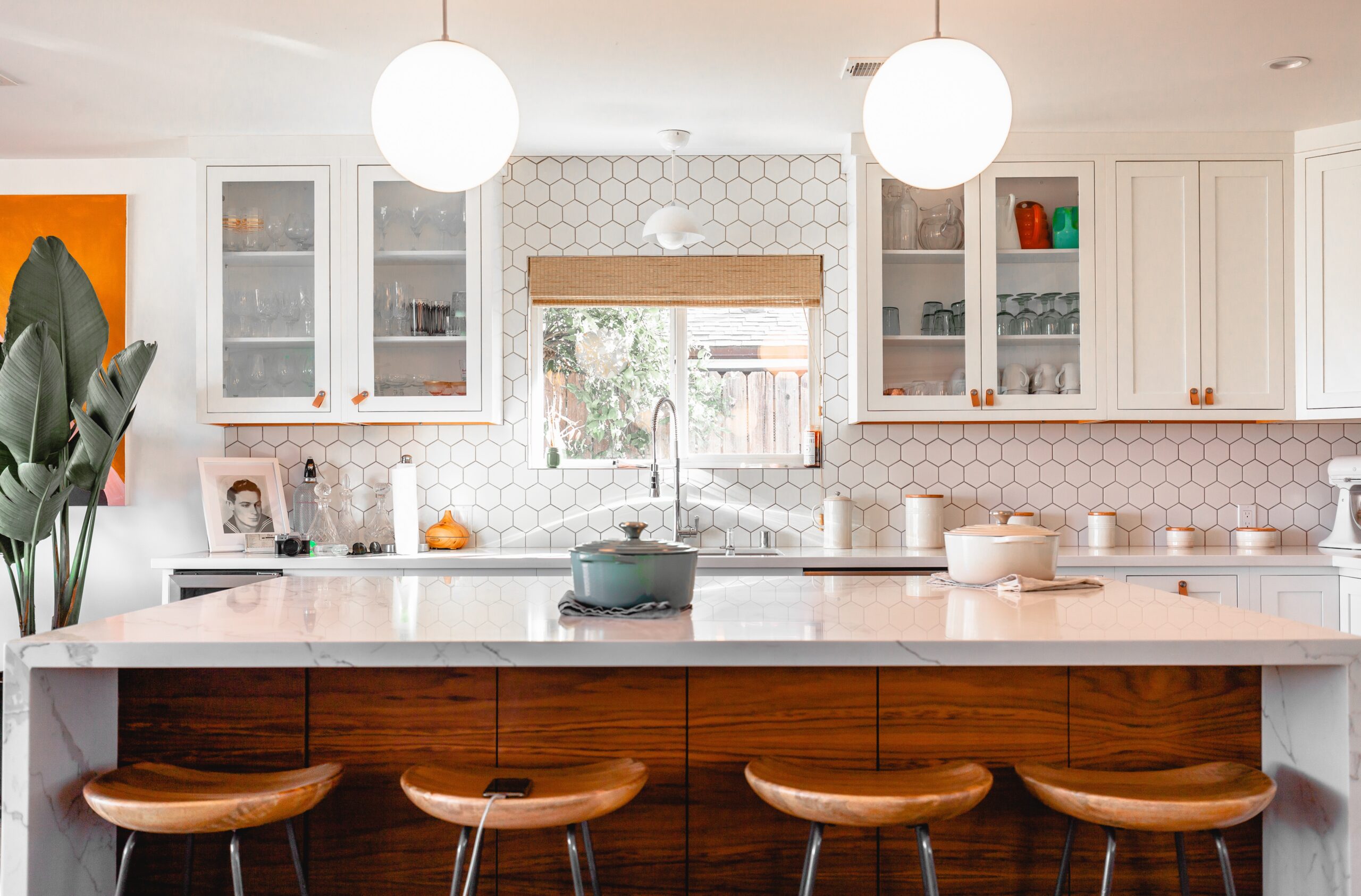
Maintenance and Care Tips
Cleaning Guidelines
Use mild soap and water for regular cleaning. Avoid abrasive cleaners and harsh chemicals.
Repair and Refinishing:
- Buffing Out Scratches: Light scratches can be removed with a fine abrasive pad.
- Professional Refinishing Services: For deeper damage, professionals can refinish the surface.

Cost of Solid Surface Countertop and Budget Considerations
Average Cost per Square Foot
The average cost of a solid surface countertop typically ranges from $35 to $85 per square foot, including material and installation. This is more affordable than natural stone but more expensive than laminate.
- Basic Quality: $35 – $50 per square foot
- Mid-Range Quality: $50 – $75 per square foot
- Premium Quality: $75 – $120+ per square foot
Factors Affecting Pricing:
- Material Type and Thickness: Thicker materials or specialty patterns can increase costs.
- Customization and Installation: Integrated sinks and custom edges add to the price.
Alternatives to Solid Surface Countertop
Budget-Friendly Alternatives
- Laminate Countertops: More affordable option, though they lack the seamless and non-porous properties of solid surface materials.
- Tile Countertops: Economical and available in various designs but prone to grout staining.
Mid-Range Alternatives
- Butcher Block Countertops: Provide a warm, natural look but require regular sealing and maintenance.
- Concrete Countertops: Customizable and durable but can be prone to cracking and staining.
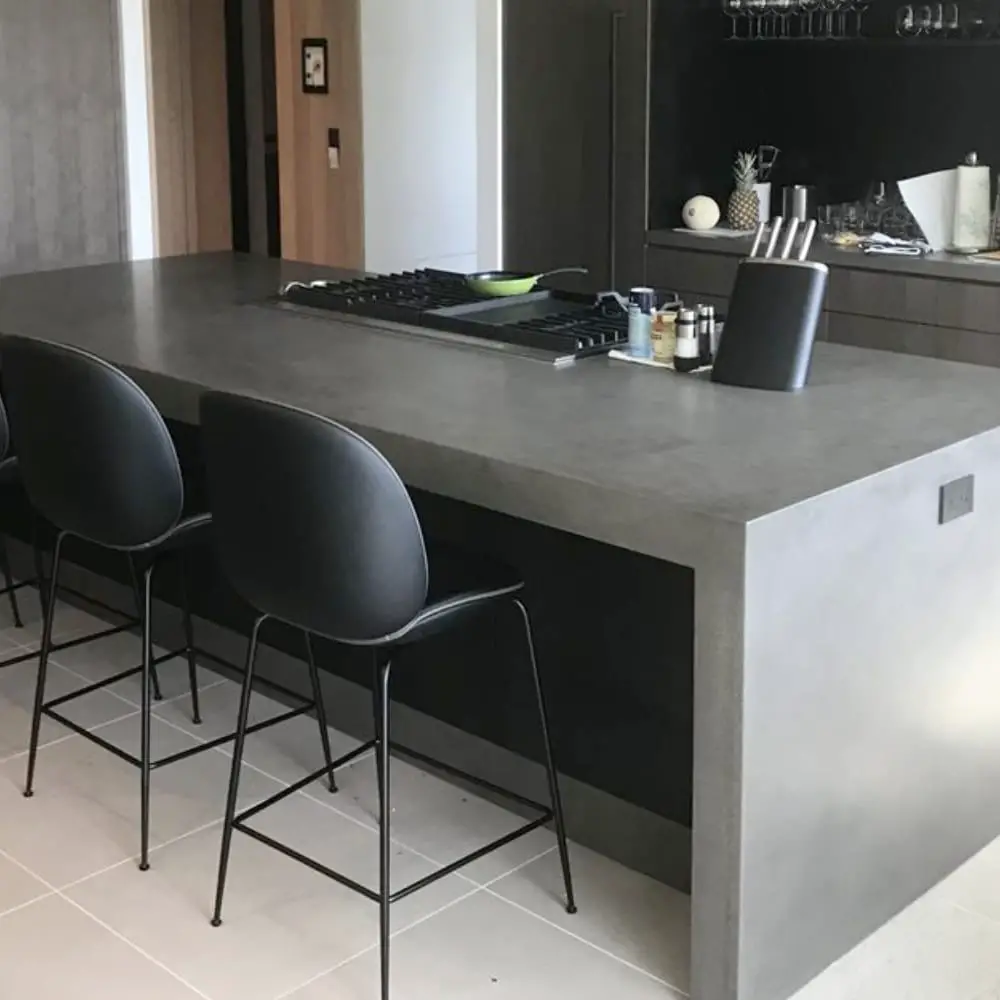
Premium Alternatives
- Engineered Quartz (Quartz Composite) Countertops: Non-porous, durable, and available in a wide range of colors and patterns.
- Granite Countertops: Natural stone with unique patterns and high durability, but requires periodic sealing.
- Marble Countertops: Elegant natural stone, but more prone to staining and scratching.
- Soapstone Countertops: Natural stone that is heat-resistant and ages well, but softer than granite.
High-End Alternatives
- Recycled Glass Countertops: Eco-friendly and available in colorful designs but can be expensive.
- Stainless Steel Countertops: Modern, sleek, and hygienic, yet prone to scratching and fingerprint smudges.
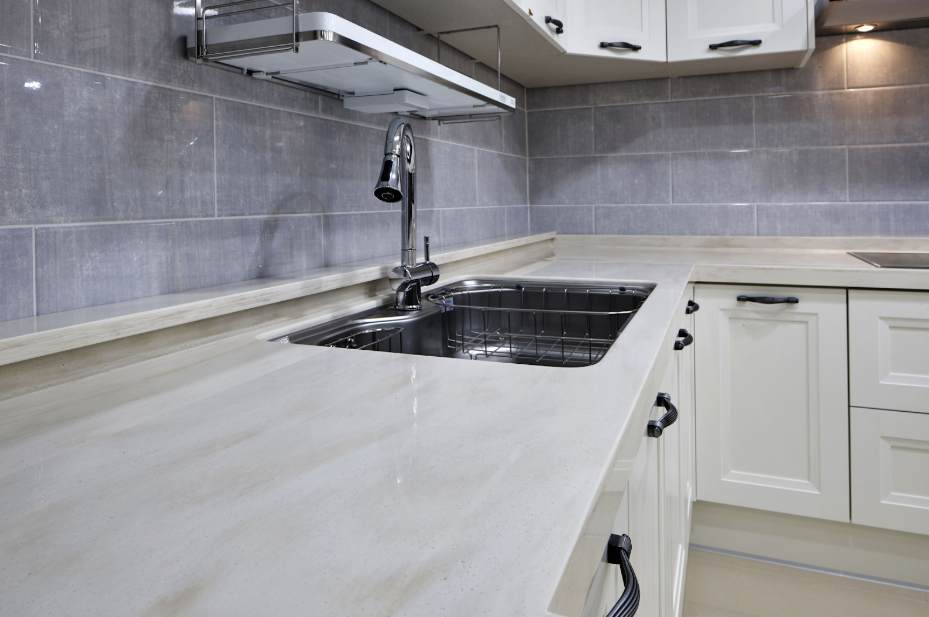
Frequently Asked Questions
Are solid surface countertops heat resistant?
Solid surface countertops have limited heat resistance. Use trivets or hot pads to prevent burns.
How long do solid surface countertops last?
With proper care and maintenance, solid surface countertops can last for decades.
Can scratches and stains be removed easily?
Yes, minor scratches can be buffed out, and stains can be removed with mild cleaners.
Is DIY installation recommended?
DIY installation can be challenging due to specialized tools and skills required. Professional installation is often best.
What are the best brands of solid surface countertops?
Popular brands include Corian, Wilsonart, Staron, and Formica.
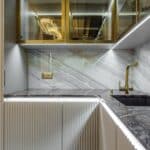
How are solid surface countertops maintained over time?
Solid surface countertops are relatively low-maintenance, requiring simple cleaning with mild soap and water. Avoid using abrasive cleaners or harsh chemicals, as they can damage the surface. For minor scratches, buffing with a fine abrasive pad can restore the surface, and professional refinishing services are available for deeper damage. Regular care helps maintain their appearance and durability for many years.
Can solid surface countertops be repaired if damaged?
Yes, one of the advantages of solid surface countertops is their repairability. Minor scratches, burns, or stains can often be buffed out with a fine abrasive pad or a refinishing kit. For more severe damage, professionals can repair or refinish the surface, making it look as good as new without the need for a full replacement.
Solid surface countertops offer a versatile, durable, and customizable option for kitchen remodeling and bathroom upgrades. Their seamless design, non-porous surface, and wide range of patterns make them a practical and stylish choice. By understanding the features, benefits, and maintenance requirements, you can decide if they are the right fit for your next project.
